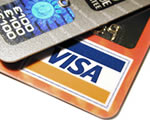 Go to main content
Go to main content
Archive Website of the UK government
Please note that this website has a UK government accesskeys system.
Main menu
Page menu
Money, tax and benefits

Buying on credit: options, pros and cons

Buying on credit is a form of borrowing. It includes paying by credit or store card, 'hire purchase', and other credit agreements including 'interest-free' credit where you 'buy now pay later'. Before buying on credit it's important to make sure you'll be able to afford the repayments - and to compare deals.
Can you afford to borrow?
Before deciding to borrow money it's important to work out whether you'll be able to repay it in the future. The Money Advice Service budget calculator will help you check your income against outgoings to see what you would have left at the end of each month to repay borrowings. If your spending exceeds or is close to your income already, you should think very carefully about whether you really can afford to borrow more.
Also bear in mind that paying back loans and credit cards may become a problem if, for example, interest rates go up or you lose your job. The Money Advice Service interactive debt test will help you check whether you have - or are likely to have - problems with borrowing.
Credit cards
When you pay for goods or services with a credit card, you're billed once a month and usually have a further month in which to pay. As a result credit cards offer a useful form of short-term borrowing if you can repay your bill in full each month.
But beware - credit card interest, as indicated by their quoted 'APR' or annual percentage rate, can be very high. If you don't repay the bill in full you're charged interest on the whole amount, including the part you have paid off. Only use a credit card if you know you can afford the repayments; if you can't your debts can quickly spiral out of control.
The UK payments association offers an impartial guide to choosing and using credit cards - including understanding 'APR' and comparing deals.
Store cards
Store cards work in the same way as credit cards, except:
- you can only use them in the store/group of stores that issues the card
- the interest rates tends to be much higher than for a typical credit card - check the 'APR'
- using them may entitle you to special offers that other customers can't get (stores often try to tempt you to sign up for a card this way)
Think very carefully before signing up for store card. They are only suitable if you can repay your bill in full in month. If you end up with too many cards it will be harder to keep track of what you owe.
Hire purchase (HP)
With hire purchase you make monthly payments (which include interest) for the item you buy, but you don't own it until you've paid back all the money you owe. The HP company can claim the goods back if you don't make your payments.
It can be easier to get credit from an HP company than a bank or credit card company, but it's usually a more expensive way to borrow. Always shop around for the best hire purchase deals.
The government's Office of Fair Trading (OFT) provides a guide to choosing and using HP, including points to look out for in the contract and how to shop around.
Interest-free credit
Interest-free credit deals allow you to 'buy now pay later'. But if you don't make the payment by the due date, you end up paying interest - usually at a high rate - on the whole amount.
Beware of being tempted to buy goods simply because you get interest-free credit. Many credit companies rely on the fact that you won't be able to make the full payment on time. If you decide to buy this way, keep a note of all your payments and the date you made them.
Buying on credit from a catalogue
When you buy through a catalogue the goods are delivered to your door and you can usually spread the cost of your purchases over a series of small weekly payments. This may be convenient, but bear in mind that the price of the items may be higher than you can get them elsewhere. If there's an interest charge check the 'APR' - it may be a lot higher than typical loan/credit card rates.
 Facebook
Facebook Twitter
Twitter StumbleUpon
StumbleUpon Delicious
Delicious Reddit
Reddit
